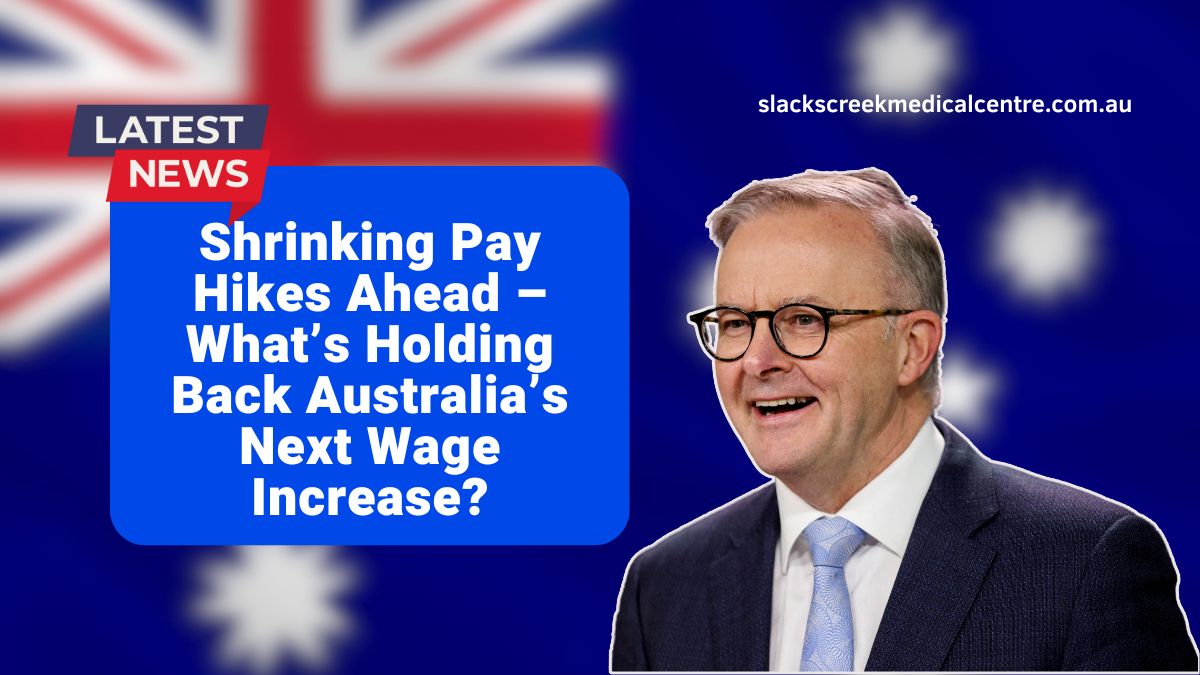As of April 2025, many Australians are bracing for disappointing pay rises, with wage growth showing signs of slowing down. Despite low unemployment and stable inflation, the anticipated wage increases are falling short of expectations.
The slowdown has sparked concerns for households already stretched by high living costs. This article dives into what’s causing the drop in projected wage growth and what it means for the average Australian worker.
Current Wage Growth Snapshot
Australia’s wage growth is losing momentum compared to previous years. The latest data shows that both the private and public sectors are experiencing modest increases, with real wage growth (after inflation) barely improving.
| Sector | Annual Wage Growth (2025) |
|---|---|
| Private Sector | 3.3% |
| Public Sector | 2.8% |
| National Average | 3.2% |
With inflation hovering around 3.0%, many workers are not seeing meaningful gains in real income, and some may even feel their purchasing power declining.
Key Reasons Behind Slower Pay Rises
1. Low Productivity Growth
Wage increases often follow productivity growth. Unfortunately, Australia’s productivity has been nearly flat in recent years. When businesses don’t see significant output gains per worker, they’re less inclined to raise wages significantly.
2. Employer Caution in a Softening Economy
Even though unemployment remains low, employers are adopting a cautious approach to salary increases. Slowing demand, global economic uncertainty, and the risk of interest rate fluctuations have led businesses to tighten salary budgets in 2025.
3. Muted Wage Bargaining Power
In sectors with high casualization and limited union coverage, workers face difficulty in negotiating stronger pay increases. Additionally, temporary employment and contract-based roles are rising, which often come with slower wage progression.
Wage Growth Expectations Across Industries
Some industries are still performing better than others in terms of wage increases, although the growth remains modest overall.
| Industry | Expected Wage Increase (2025) |
|---|---|
| Healthcare & Social Services | 3.6% |
| IT & Telecommunications | 3.5% |
| Manufacturing | 3.2% |
| Retail & Hospitality | 2.9% |
| Public Administration | 2.7% |
While sectors like healthcare and IT are slightly ahead, no industry is seeing the kind of wage growth that keeps up with household financial pressures.
Read More: Smart Black Friday Hacks Aussies Are Using To Save Big And Beat Cost-of-Living Pressures
What This Means for Workers
The reality of slower pay increases could mean:
- Lower disposable income
- Reduced savings capacity
- Increased reliance on credit or government support
- Strained budgets despite full-time work
For households already managing mortgage repayments, rent, energy bills, and groceries, even a small difference in expected pay rise can have a significant impact.
Australia’s 2025 wage outlook reflects a challenging balance between economic caution and rising cost-of-living pressures. While some industries are offering slightly better pay increases, the overall trend shows slower wage growth than expected.
For many Australians, this means tighter budgets and the need for smart financial planning. Until productivity rebounds or the economy accelerates, substantial pay hikes may remain out of reach for most workers.
In summary, Australia’s wage growth in 2025 is slowing despite stable employment. Workers may need to adjust expectations and explore ways to boost their financial resilience. Until economic conditions improve, pay hikes may remain modest across most sectors.
FAQs
Why are wages growing so slowly despite a strong job market?
A: Productivity has stagnated, and businesses are cautious amid economic uncertainty, limiting their willingness to raise wages.
Will real wages improve in 2025?
A: While nominal wages are increasing, real wage growth remains weak, meaning most workers may not feel better off financially.
What can I do to improve my income this year?
A: Upskilling, switching to high-demand industries, and negotiating salary increases during performance reviews can help improve earnings.
How does inflation affect real wage growth?
If wages rise slower than inflation, purchasing power declines. Even if you earn more on paper, your money buys less in reality.
